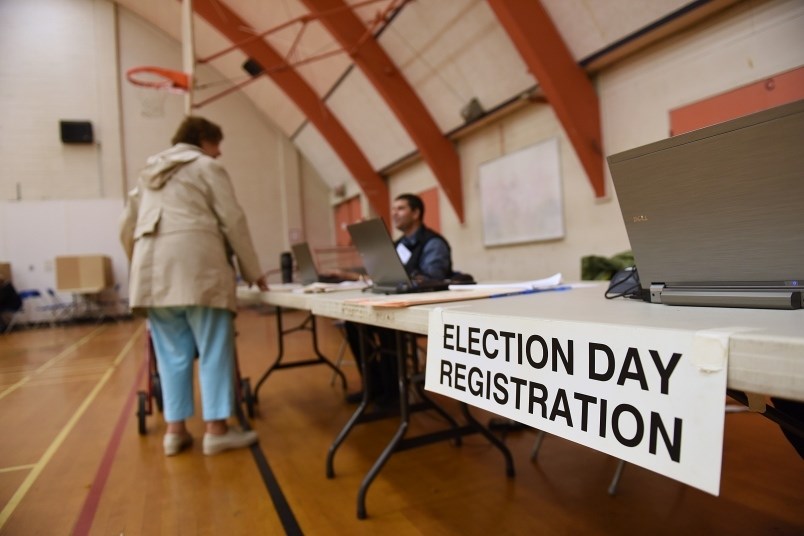If youâre a political junkie, you probably canât get enough news about whatâs happening over in Victoria with the history being made on the floor of the B.C. legislature.
But because I spend way more time at city hall than on the island, I thought Iâd pick up on what the next civic election and what changes could be in place for voters.
As I wrote, a lot of what the landscape looks like for the civic vote, particularly banning union and corporate donations, depends on the will of the provincial government to make changes and adopt legislation.
While campaign finance reform receives most of the headlines, another topic came up at city council this week. Itâs this idea that permanent residents should be allowed to vote in civic elections. These are people who have been given permanent residency status by immigrating to Canada, but are not Canadian citizens.
So what do you thinkâ good idea? Bad idea?
Council discussed the topic after reviewing a staff review of findings and recommendations of the Independent Election Task Force report that went before council in January.
Current rules state that only Canadian citizens who have been B.C. residents for at least six months immediately before the day of registration are entitled to vote in a civic election.
The task forceâs report recommended a sweeping series of recommendations to better engage Â鶹´«Ã½Ó³»voters, including extending voting rights to permanent residents.
The suggestion is that with at least 60,000 permanent residents identified in Â鶹´«Ã½Ó³»in 2011 â and likely a lot more today â that allowing them to vote would go a long way to reach the task forceâs goals of a 60 per cent voter turnout by 2025.
It will also do a lot for the permanent resident, as this quote suggested in the task forceâs report: âAllowing permanent residents to vote in municipal elections will increase their public confidence and trust in the system by ensuring they have representation in governance, and become constituents of the elected representatives, which will create an entry point to Canadian life.â
But Vision Â鶹´«Ã½Ó³»Coun. Andrea Reimer, who introduced the motion to have staff explore the idea further, cautioned that in some countries a person is not allowed to hold dual citizenship.
âSo if you have family back at home, itâs a really difficult choice to ask people to make â to give up citizenship â and therefore, perhaps, access to visiting their family in exchange for voting rights in a municipal election, â said Reimer in explaining her reasons for further examination of a potentially interesting shift in civic democracy.
Vision Â鶹´«Ã½Ó³»Coun. Heather Deal came to Â鶹´«Ã½Ó³»from Michigan on a work permit in 1984. She became a permanent resident before becoming a citizen.
âWhen I finally got my citizenship, which took about nine yearsâ¦the first thing the judge said to me is, âWhatâs the most important thing about being a Canadian?â And the answer was, âvote,ââ she told council, noting how frustrating it was that she couldnât cast a ballot as a permanent resident. âWhat a thrill it would have been to hear that question when I got my permanent residency.â
In supporting the need for city staff to further examine extending voting rights to permanent residents, Vision Â鶹´«Ã½Ó³»Coun. Geoff Meggs said he believed many Canadians take democratic rights for granted â as opposed to newcomers âwhoâve gone through the process and made an intentional decision to participate in our country.â
Added Meggs: âItâs very important, not withstanding the work involved, to begin this discussion with the wider community, so that they go through the same thought process that I did when I began to ask myself about this â because there are probably 100,000 people living in city boundaries, paying taxes, participating in services, concerned about housing, worried about homelessness and you name itâ¦but denied the right to vote.â
The next municipal election is in October 2018.
@Howellings



